Showing 1-6 of 6 results
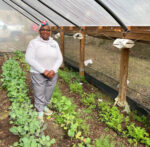
Pest Exclusion Systems for Pest Management in Vegetable Production Across the Southeast
In organic vegetable production, and in situations where farmers are seeking to reduce chemical applications, Integrated Pest Management (IPM) strategies are recommended to exclude pests in both opens fields and in high tunnels. The principles of pest exclusion involve separating the insect pest from the host plant and protecting the crop at a specific growth stage. Careful planning of both materials selected and management design are important to keeping pests out of a cash crop. This bulletin provides data and information from on-farm demonstrations on the use of pest exclusion systems. Pest exclusion systems use shade cloths as a barrier around high tunnels, low tunnels and hoop houses to exclude insect pests.
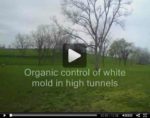
Organic Control of White Mold in High Tunnels
The fungus Sclerotinia sclerotiorum infects many of the cool-season crops produced in Kentucky. This SARE-funded video presents information on the high tunnel production system most commonly used in Kentucky; the disease cycle of S. sclerotiorum; and two control tactics compatible with national organic standards, solarization and biofumigation.
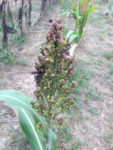
Innovations in Large-Scale Trap Cropping for Reducing Insect Pests
Trap cropping is a unique pest prevention system that uses insect behavior to deter pest feeding. Benefits of trap cropping not only include effective pest management, but trap crops can also increase biodiversity, conserve natural enemies and reduce wind damage to main crops.

High Tunnel Pest Exclusion System
Insect pests are one of the major problems in organic production systems. Organic IPM practice consists of a three-tiered approach consisting of systems-based practices, mechanical tactics, and biorational insecticides. Mechanical tactics encourage the use of physical barriers for pest exclusion. This bulletin provides preliminary research data and field observations about the success of shade cloths, or high tunnel pest exclusion (HTPE) systems, as a more permanent barrier system around the high tunnels.
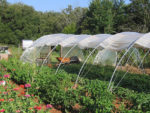
High Tunnel Crop Production Handbook
A high tunnel crop production handbook from Alabama Cooperative Extension.
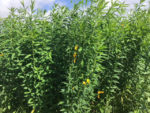
Annual Cover Crops in Florida Vegetable Systems
Fact sheet series from the University of Florida IFAS Extension on integrating cover crops in vegetable production systems in Florida.